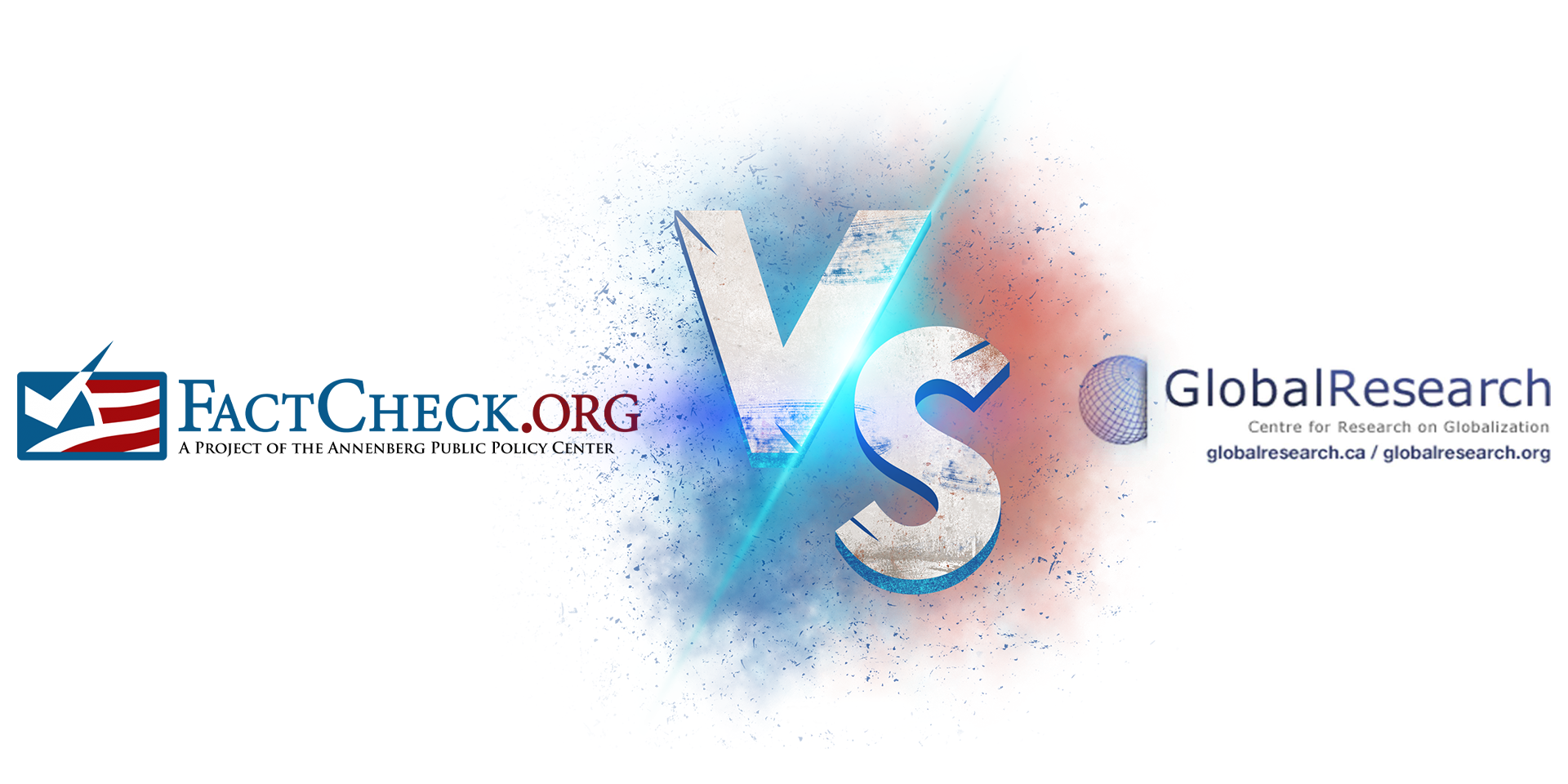This post will be another comparison of fake fact-checking sites with real fact-checking sites and how there are differences in their design language (Typography, Images, etc.), the content (Expertise, Rigour, Transparency, Reliability) and the overall usability. It’s hard to find similarities that apply to the various pages, but this post will try to show the most common ones. Therefore I decided to compare InfoWars with ProPublica in the previous post and in this one Global Research with Fact Check.
Global Research vs. Fact Check.
Globalresearch is an “anti-Western” website that has troubles distinguishing between serious analysis and discreditable junk and so just publishes both. While some of GlobalResearch’s articles discuss legitimate humanitarian concerns, its view of science, economics, and geopolitics is conspiracist. The website under the domain names globalresearch.ca, globalresearch.org, globalresearch.com etc., is run by the non-profit The Centre for Research on Globalisation (CRG), which was founded by Michel Chossudovsky (1946–), a professor emeritus of economics at the University of Ottawa.
Fact Check is a nonpartisan, nonprofit project of the Annenberg Public Policy Center of the University of Pennsylvania monitors the factual accuracy of what is said by U.S. political players, including politicians, TV ads, debates, interviews and news releases. Their goal is to apply the best practices of both journalism and scholarship, and to increase public knowledge and understanding.
As you can clearly see common rules of distinguishing if a site is a false information spreading site or not, do not apply to these pages. Some governments already started to implement laws or similar actions against misinformation. Also other scientist and artist startet to visualize this problem.
So last but not least the comparison. Both pages use he SSL certificate which means they should be “safe to use”. While FactCheck.org always has their sources on the end of each article, GlobalResearch.ca only has sources to some articles and also these are called footnotes. Overall both sites do what they are supposed to do, but design related there are some differences. Global Research is really jam-full with articles. There is almost no space in-between the preview blocks and also the font is pretty small. Whereas Fact Check uses a lot more white space and also fonts and images are bigger. So in points of accessibility and readability Fact Check is the clear winner. The website of Global Research just feels like they need to give you all the information in one screen. To describe this phenomenon visually, it feels like some stranger is screaming to your face, but you actually do not understand a thing. The overall usability of both sites is good, but the Fact Check page has a clearer visual structure and a better design language. In terms of functionality everything works fine. Both websites more or less follow the common design principles, even though both sites could be better. During my research I experienced a lot of stuffed content websites and this mainly occurs on fake-news or hoax spreading sites, but unfortunately also some proper fact-checking sites have a really bad visual appearance. So that fact does not tear them apart.
